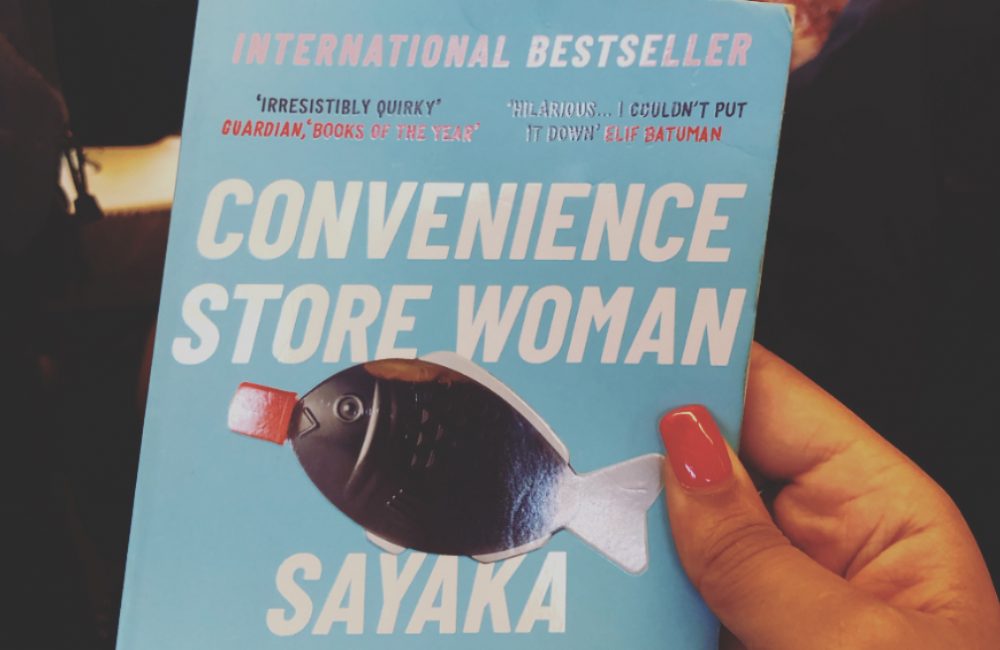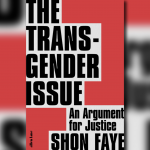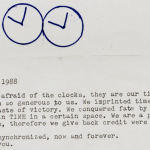
Convenience Store Woman
By Sayaka Murata (translated from Japanese by Ginny Tapley Takemori)
Keiko is 36 years old, single, with no children and for the past 18 years has been working at the same convenience store, people around her find this WILD and yes, there is something disconcerting about someone who after all those years can still come into work and enthusiastically promote rice balls but as you read the book from Keiko’s perspective you realise it actually makes sense. Through flashbacks it becomes clear that Keiko has some kind of neurodivergence and the convenience store provides her life with structure and clear rules that make things easier for her. For example, Keiko sleeps 8 hours a night so she is refreshed and has energy to work, she only really showers because it would be rude to the customers at the store if she didn’t maintain her hygiene. Keiko is the type of worker that capitalism would have us all be because she LIVES to work, she doesn’t care that she can only afford a small studio flat with roaches and because she only eats for sustenance it’s fine that she eats very basic boiled food. Shiraha also works at the convenience store, an incel who is throughly disliked by every other character in the book, he like Keiko is an outsider but his refusal to at least try to fit in and his hatred of society repulses those around him.
This book made me think about, ‘Terrace House’ an extremely popular Japanese reality tv show on Netflix. The premise of the show is that five men and women from across Japan come and live together in the Terrace House. The show is very SLOW, particularly to a Western viewer like me who is used to the obvious drama of Big Brother or Love Island, the drama in Terrace House is more subtle and much of the discussions the contestants have centre around goals and aspirations, these conversations often become interrogations when the person being asked doesn’t provide adequate answers to questions such as to why they’re 36 years old, single, without children and working in a Convenience Store? In the book Keiko is interrogated in this way and tries to find satisfactory answers to get everyone off her back, this is where Shiraha comes in…
Fifty Sounds
by Polly Barton
This book is not a book in translation but rather a book written by a translator. Polly Barton, through 50 uniquely Japanese onomatopoeic sounds, takes us on a personal journey. The book documents Polly’s experience learning Japanese, from moving to Japan to teach English as a 21 year old graduate to becoming a literary translator.
“From min-min, the sound of air screaming, to jin-jin, the sound of being touched for the very first time, from hi’sori, the sound of harbouring masochist tendencies, to mote-mote, the sound of becoming a small-town movie star, Fifty Sounds is a personal dictionary of the Japanese language, recounting her life as an outsider in Japan.“
At the beginning of the book, Polly describes going to Cambridge to read Philosophy, ‘One of the first things I remember from my time as a philosophy undergraduate was a dawning sense of terror at the way people spoke’, I could really relate to this sentiment. When I did my undergraduate in Art History, I found the language used by professors and students alike really inaccessible, it wasn’t the concepts we were learning about that I struggled with but rather the barrage of long academic words to describe them. That being said, I feel like Polly must have some kind of kink for that feeling of being on the outside because it’s also what drew her to the Japanese language.
Whilst at university, Polly discovered the philosopher Wittgenstein, it was my first time reading about his theories and I found them by far one of the most interesting parts of the book. Ideas such as, ‘What if language assumes meaning through its usage in the community that gives birth to it, and its primary function is not the internal thought but social interaction?‘ a notion that runs throughout the book.
I’ve been attending Italian lessons for a while so I found reading about Polly’s experience learning a second language particularly interesting especially because of how different it is to my own experience. I think certain languages are suited to certain personality types, the grammatical rules of Japanese sound truly exhausting and the feeling of horror that comes over Polly when she makes a mistake is strange to me. When speaking Italian I don’t worry if I make a silly mistake because so much of speaking Italian is in the body language and expressiveness anyway that as long as the main gist of what I am attempting to say is understood, I count it as a success. Perhaps this is also because Polly and I are at different stages of our language learning journeys and I am still at the baby stage. Later in the book Polly writes that for many years she tried and failed to learn Italian because of her, ‘hesitant language learning persona.’
Overall whilst I liked this book and I enjoyed reading the parts about philosophy as well as the linguistic traditions of Japan, I found the book too sad. There is a melancholy that runs through and it’s very rare that Polly is actually happy, even the moments that she is in love are imbued with sadness. I don’t mean to say she chooses to be miserable but I feel like she has a personality type that seems to feel sadness in every situation. Learning language is difficult and sad, falling in love is difficult and sad, friendships are difficult and sad.
There’s No Such Thing as an Easy Job
by Kikuko Tasmura (translated from Japanese by Polly Barton)
“A woman walks into an employment agency and requests a job that requires no reading, no writing and ideally, very little thinking“
I actually pre ordered this book before it came out in late 2020 with every intention of reading it immediately, predictably I did not. I finally started reading last year for women in translation month which turned out to be the perfect timing because I was working with an agency doing a wide variety of ‘easy’ jobs, in fact, I read about half of the book whilst covering the reception in an empty office because the usual receptionist was on her summer holidays, I was there just in case the phone rang (of course it did not.) I didn’t actually get round to finishing the book but returned to it this year after finishing Fifty Sounds a book which I had only initially purchased this time last year because I’d been reading There’s No Such Thing as an Easy Job, I’d also returned to my agency job so we had truly come full circle. (I still haven’t got round to finishing the book) so we go again next summer I suppose!









Leave a Reply